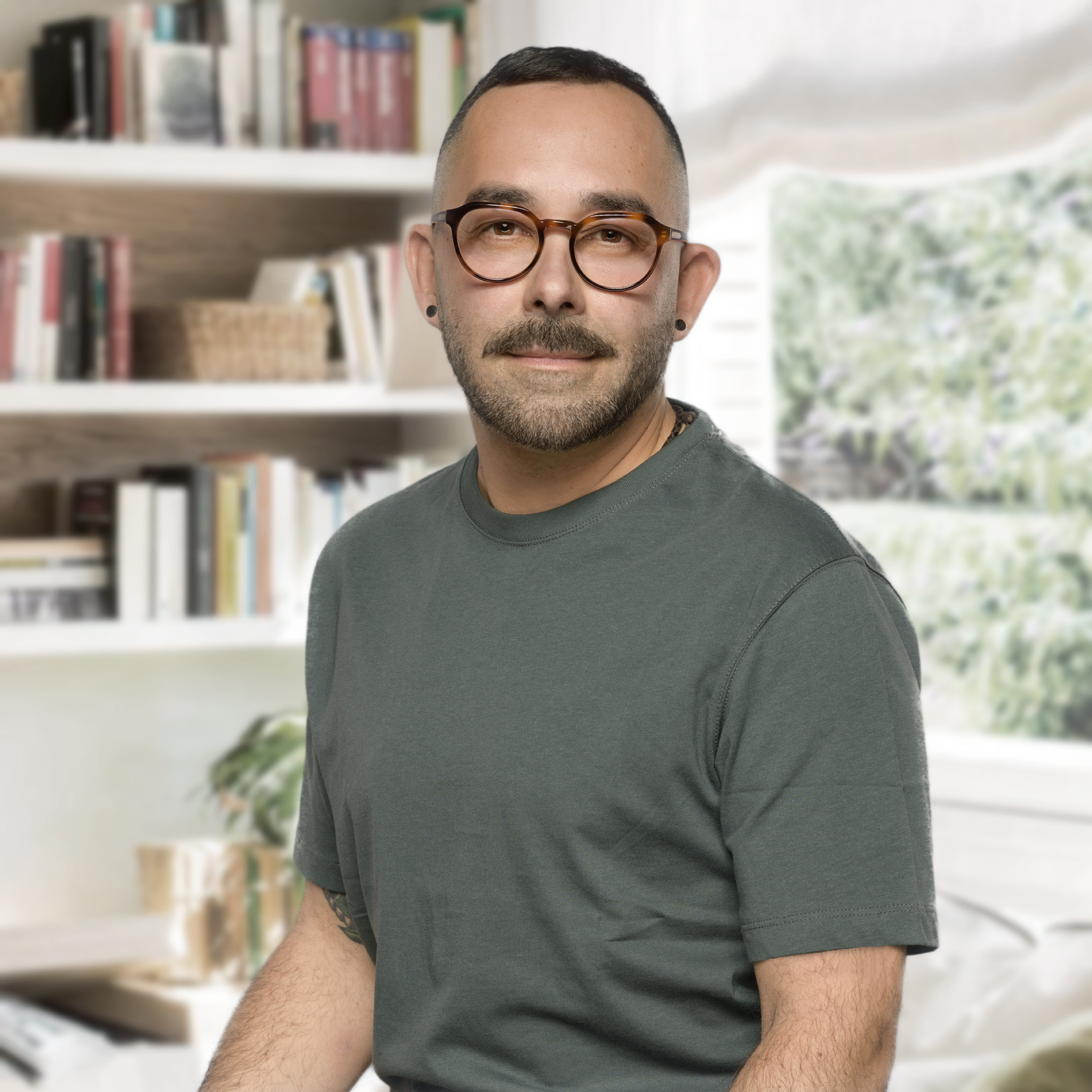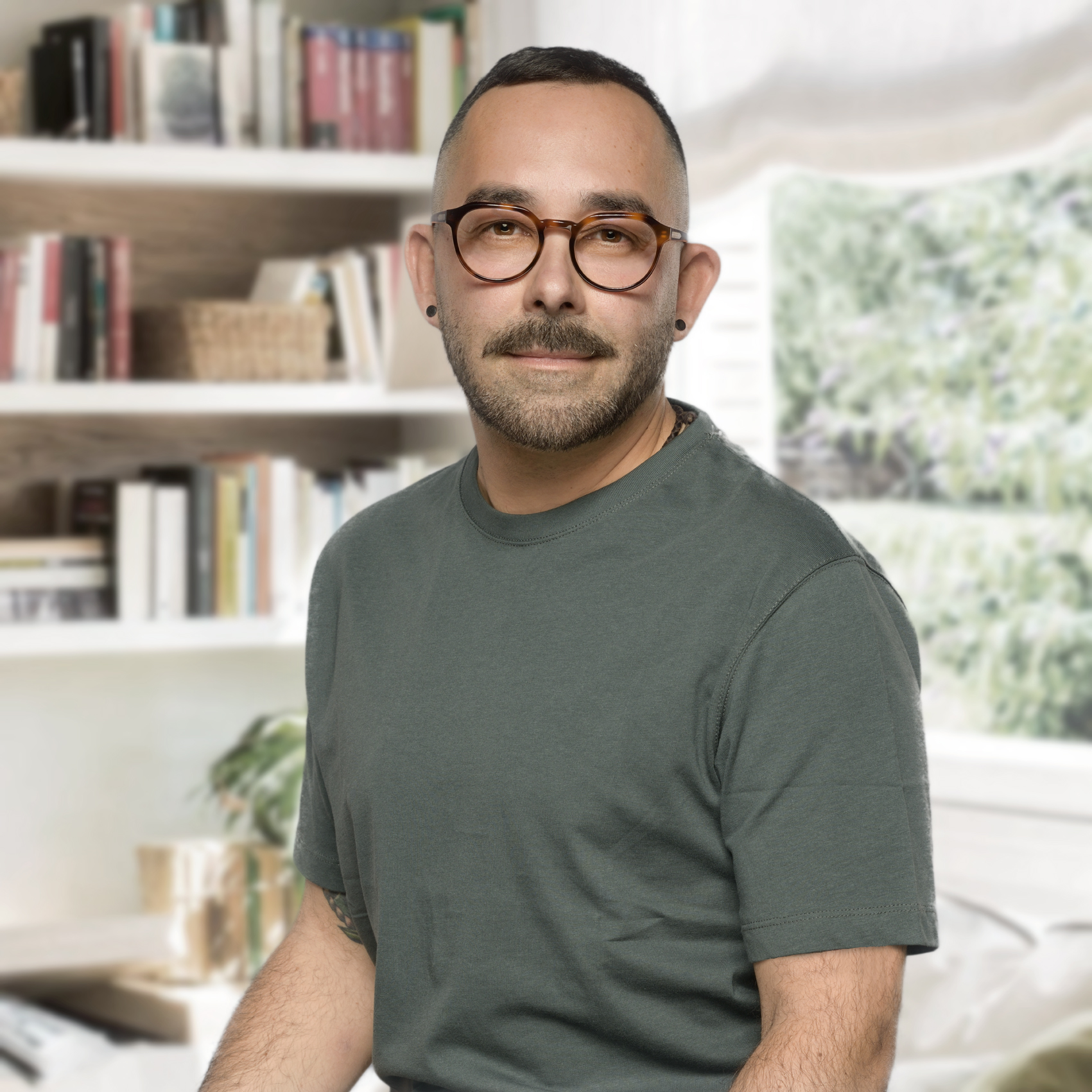Meet the Therapist: Ernesto L. Brea
Sep 27, 2024


Ernesto L.Brea
Jan 26, 2025 47
Ernesto L. Brea is an online psychotherapist
What attracted you to become a therapist?
Before becoming a therapist, I spent many years working in roles that involved one-on-one interactions, often in hour-long sessions, in both London and Japan. These experiences helped me build meaningful connections and develop a natural sensitivity in how I relate to people. Working closely with individuals from diverse backgrounds gave me valuable insight into both personal dynamics and the importance of cultural sensitivity. This foundation made the transition to therapy feel quite natural.
What started as a curiosity-driven course out of personal interest led me to deeper exploration, and I soon found how meaningful and fulfilling this work could be. Over time, it became clear that therapy was my true path, and I never looked back.
Where did you train?
I trained at Roehampton University, where I completed a three-year BSc Honors in Integrative therapy and I spent a further three years at Wimbledon Guild, focusing on Attachment Studies.
Can you tell us about the type of therapy you practice?
For me, being a therapist is an artisan job. It's not about following a manual or a rigid formula, but about meeting each person where they are, taking the time to fully understand their unique story, and working together to find the most effective way forward.
The type of therapy I practice is integrative with an attachment-focus, meaning that I look closely at how early life relationships influence current emotional patterns, behaviours, and interpersonal dynamics.
For clients, this approach can help uncover the root causes of their struggles, whether they are experiencing anxiety, depression, or relationship difficulties with partners, family or workers.
How does your way of working help with symptoms of trauma?
I enjoy working with trauma because it requires long, delicate, sensitive, and intuitive work. As an integrative therapist with a focus on attachment, I draw from narrative therapy, psychoanalytic concepts such as object relations, and CBT in my practice. I help people create personal meaning and, by understanding their attachment difficulties, they can begin to recognise and make sense of their defences and attachment strategies. This fosters healthier, more secure relationships with themselves and others.
Through this process, clients not only create a coherent life narrative but also develop self-awareness and emotional insight. An essential part of the work is helping clients internalise the therapeutic relationship, allowing them to mentalise and self-regulate, even beyond the therapy room.
What sort of people do you usually see?
The clients I typically see are adults, generally ranging in age from 28 to 50. However, I also work with many individuals outside of this age range, so it's not a strict boundary.
The people I see often come to me with an internal world that has become unmanageable. They may be struggling with anxiety, depression, grief, trauma, or relationship issues, whether with partners, family members, or in the workplace. Some are navigating significant life changes, while others are processing the emotional weight of loss or trauma.
Have you noticed any recent mental health trends or wider changes in attitude?
I've observed a growing trend, especially among younger generations asking for advice and exploring the use of substances like micro-dosing psilocybin and ayahuasca rituals as part of their mental health journey. While I remain neutral on this matter, it reflects a broader societal shift toward alternative methods for emotional healing and self-discovery, often rooted in ancestral, traditional, and tribal remedies. Many are turning to these substances in the hope of gaining deeper insight or relief from mental health challenges, particularly when conventional approaches felt insufficient.
What do you like about being a therapist?
I pay close attention to the narratives people use to express themselves and enjoy observing the subtle signs of psychological change in the way they speak about things. It's much like witnessing a plant in my garden sprout a new green leaf.
Also, building relationships with my clients and supporting them on their journeys is incredibly rewarding. Their stories are rich and diverse, offering deep insights into the human experience. I learn from them just as much as they learn from me-they teach me about life and offer perspectives that others might never hear or see. To me, this work is a privilege. It's a lifelong journey of growth, not just for my clients but for myself as well.
What is less pleasant?
Well, aside from paperwork and invoicing-the bane of an otherwise deeply fulfilling profession-I'd say one of the toughest parts is sitting with clients who are in deep pain, knowing that I can't make it disappear instantly. It's hard to witness their suffering and understand that the healing process takes time. I can guide and support them, but the journey is theirs, and sometimes that's a difficult reality to accept.
How long have you been with Welldoing and what you think of us?
I've been part of Welldoing since 2014, nearly a decade now. One of the features I really appreciate is the variety of ways people can access a therapist-whether it's through personal matching, a geographical search, or filtering by a questionnaire. The user interface is intuitive and reliable, with minimal technical issues, which makes the experience smooth for both clients and therapists.
I also value the option to attend CPD sessions online, especially as I work remotely, so this is a feature I plan to take full advantage of.
What books have been important to you in terms of your professional and personal development? Do you ever recommend books to clients?
Coming from an integrative background with a strong psychoanalytic foundation, Yalom's work encouraged me to practice more freely, flexibly, and intuitively. His relational approach resonated with me, allowing me to work in a way that felt more authentic.
I recommend books to clients thoughtfully, and one that I often suggest is A New Earth by Eckhart Tolle, which can help with personal growth and mindfulness. Other examples include Yalom's The Gift of Therapy for understanding the therapeutic process, Attached by Amir Levine and Rachel Heller for exploring attachment styles, A Confession by Tolstoy for existential insights, and Sitting by the Well by Marion Woodman for the mind-body-spirit connection.
What do you do for your own mental health?
For my own mental health, I swim, meditate, hike, do a lot of gardening, and, most importantly, seek the company of friends and invite joy into my life. I also indulge in foie gras, enjoy the occasional glass of wine, and savour the juicy parts of life. Of course, finding that balance isn't always easy-it's a constant work in progress. Like everyone else, I have to remind myself to make space for both self-care and pleasure, but it's those little moments that help me make life more enjoyable.
You are an online therapist. What can you share with us about seeing clients online?
I spent over a decade working in my consulting room in Central London before transitioning to online therapy in response to the global pandemic. Moving to an online space requires a more nuanced understanding of how to use the medium effectively. While there are some limitations, particularly around risk assessment and determining suitability for online work, it also offers incredible flexibility-I'm able to work with clients from anywhere in the world.
What's important is that clients know they can rely on me, even though I often move locations. I put a lot of care into ensuring that, no matter where I am, the consistency and reliability of our sessions remain intact. What truly matters is creating a stable and supportive space for them, regardless of geolocation.
What's your consultation room like?
My consultation room is quiet and intimate, designed to create a warm and comfortable atmosphere. There's a shelf with books, a plant, and a few personal touches that add to the space. I've put a lot of effort into ensuring the quality of both video and audio, aiming to create a more immersive experience for my clients. My goal is to minimise the feeling of using a computer, helping clients feel more present and connected during our sessions.
What do you wish people knew about therapy?
How much we bear clients in mind, how much they might come in our thoughts when we read. It's not uncommon for a client to come to mind while I'm reading, watching a movie, or even cooking. We invest a lot of thought and care into understanding them, their needs, and their unique situations. And while we focus on helping clients I wish people also knew how much we learn from them too.
What did you learn about yourself in therapy?
In therapy, I learned how deeply culture, relationships, and transgenerational trauma have impacted me. It helped me understand how these factors have shaped my perspectives, behaviours, expectations of others, and the choices I've made in life.
Contact Ernesto here
Meet more Welldoing therapists

Ernesto L.Brea
